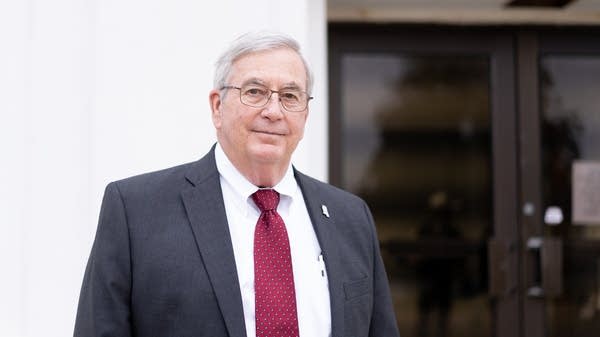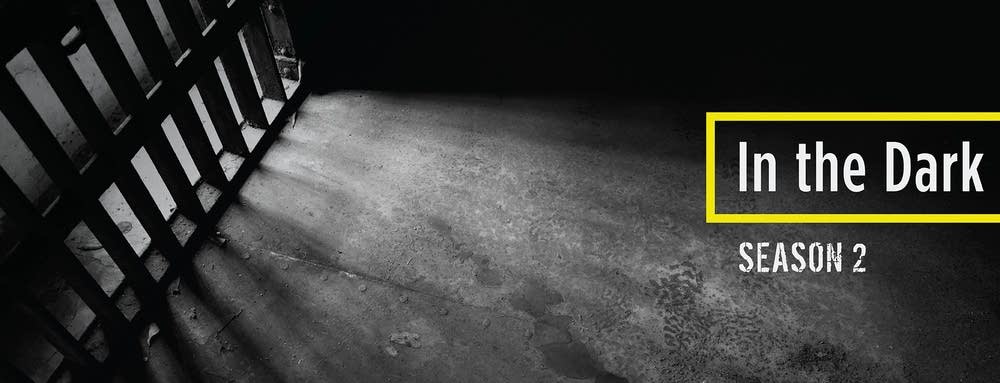Doug Evans running unopposed for reelection
The controversial Mississippi prosecutor will win another four-year term and could decide if Curtis Flowers faces a seventh trial.

With the U.S. Supreme Court about to hear oral arguments in the case of Curtis Flowers, the outlines of a possible seventh trial in the 22-year saga are beginning to take shape.
Flowers has been tried six times for the 1996 murders of four people at a furniture store in Winona, Mississippi, and remains on death row. Doug Evans — the district attorney who's prosecuted all six trials and received national attention for his handling of the case — will run for reelection unopposed. The Mississippi Secretary of State's office announced on Friday evening, at the close of the candidate filing period for the 2019 election, that no one had decided to challenge Evans in the state's Fifth Circuit Court District.
It's official: Doug Evans will run unopposed in 2019. Today was the deadline to enter the DA's race in Mississippi's 5th District. Nobody else signed up.
— In the Dark (@InTheDarkAPM) March 2, 2019
Evans, the prosecutor who's tried Curtis Flowers six times, will keep his job for four more years. pic.twitter.com/P0l7RdF6Ir
Evans' conduct has been widely criticized following revelations in the second season of In the Dark, a podcast by APM Reports. The Supreme Court is reviewing Flowers' contention that Evans dismissed African-Americans in jury selection because of their race, which is unconstitutional. The High Court will hear oral arguments in the case on March 20.
Evans recently told reporters for In the Dark that he doesn't expect the justices to reverse Flowers' 2010 conviction. If they do, Evans would be the one to decide if Flowers is tried a seventh time, and he could very well end up prosecuting the case again himself.
That trial, however, might look very different from the previous six. According to a 327-page petition filed with the Mississippi Supreme Court — another of last week's developments — Flowers' attorneys have a bundle of new evidence they'd like to get onto the record.
This new filing is unconnected to Flowers' direct appeal of his conviction, which will be decided by the Supreme Court this spring and is limited to the record of the 2010 trial. Instead, it's part of Flowers' state post-conviction appeal, which has been proceeding on a parallel track and will become Flowers' next best chance at freedom if SCOTUS rules against him. Post-conviction petitions can include evidence that wasn't known at the time of trial. Flowers' lawyers argue that, given what is now known, "no reasonable jury would be able to find Mr. Flowers guilty beyond a reasonable doubt."
If Flowers wins at the U.S. Supreme Court, then the post-conviction appeal will become moot because his conviction will have been overturned. But the new evidence certainly won't go away and could be quite relevant to a seventh trial.
In their new filing, Flowers' lawyers draw heavily on reporting from Season 2 of In the Dark. They attack the reliability of David Balash, the firearms examiner who told reporter Madeleine Baran that he used "mental gymnastics" to determine that Doyle Simpson's gun was the murder weapon. They have a new statement from Jeffery Armstrong about the short tunnel near Tardy Furniture that ends behind the home where his dog dug up a rusty .380-caliber gun in 2001. They quote Winona Police Captain Dan Herod, who told In the Dark that someone from the police department collected the gun from Armstrong and turned it over to the district attorney's office, after which it was never seen again.
They also cite In the Dark's finding that 17 people who gave statements to the district attorney's investigator, John Johnson, said that Johnson's notes didn't match what they'd told him. Flowers' lawyers argue that Johnson "fabricated evidence," and that if they'd known that fact at the time of trial, they would have used it to cast doubt on the whole investigation.

Sections of the filing are devoted to discrediting the prosecution's key witness, Odell Hallmon. The attorneys use In the Dark's extensive research into Hallmon's criminal history to argue that "Evans struck a series of backroom deals with ... Hallmon" that "would have eviscerated [his] credibility" and were never disclosed to Flowers' defense team. The petition also includes Hallmon's recantation to In the Dark — "As far as [Curtis] telling me he killed some people, hell, naw, he ain't ever told me that. That was a lie."
It's unclear from the filing whether Flowers' lawyers have made contact with Hallmon in Parchman prison, or with Willie James Hemphill, whose presence in the investigation, they say, undermines the state's repeated and false claims that Flowers was the only suspect from the start.
Hemphill told In the Dark that, following a manhunt, he was arrested and held in a Winona jail for 11 days, that investigators told him he'd been seen near Tardy Furniture on the morning of the murders and that they interrogated him for several hours.
Flowers' lawyers argue that if they'd have had the opportunity to present evidence of alternate suspects it might have changed the outcome of Flowers' sixth trial. "The Hemphill interrogation eats away at the theory of the State's case. The crystal-clear connections the State made between Mr. Flowers and the scene of the crime would have grown cloudy," they write. The attorneys quote a juror from Flowers' sixth trial, Alexander Robinson, who told In the Dark that, with proof of an alternate suspect, "it would have been different."

